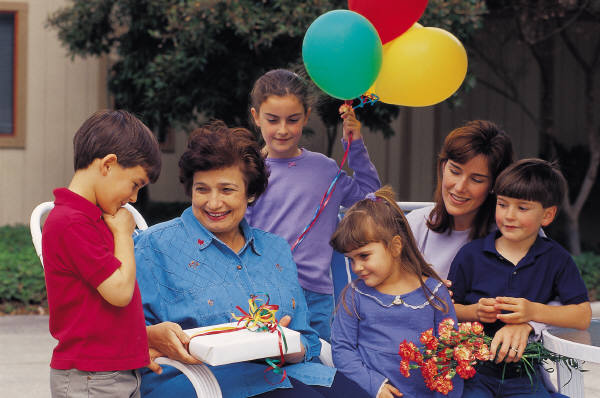If you read forums and comments related to senior care and family caregiving, you’ll find a lot of different opinions and misinformation. People can be pretty harsh in their judgments of others too. So, we’d just like to say:
- Families do “take care of their own” despite many statements to the contrary. 80% of senior care is provided by family members and at EasyLiving, we talk to many concerned families each and every day.
- Elder care can be challenging, and families have to make personal decisions about what is best for them.
As mentioned, we talk to families every day about their senior care concerns and needs. Sometimes they are calling because they are worried about a loved one and don’t know where to turn for help, while other times the family has all agreed it is time to call upon a home caregiver for assistance. Many times they are unaware of the resources available to help and struggling with getting an elder loved one to accept the unknown concept of home care.
The realities and statistics behind senior care today:
The 85 and older population in Pinellas County, Florida where EasyLiving provides home caregiver services, has had a 12.8% increase in the past 5 years. The county is comprised of about 27% seniors, aged 65 and above. We all hear about the upcoming “age wave” of Baby Boomers, but for those of us in many Florida counties, we have experienced such a population mix for quite some time.
In the U.S., one in four families is involved in senior care for an aging parent or relative. Of those, statistics indicate that 7-10 million do so from a distance. And, one in eight is caring for both an elder relative and children (and 30% are now caring for more than one elderly relative).
From these statistics, we can draw a few (pardon if they are obvious) conclusions:
Caregiving is now an expected part of family life and if you aren’t doing it now, expect to be.
You will likely be (or are) caregiving while juggling a lot (caring for kids, working, caring for multiple relatives and traveling/managing from afar).
Can you be prepared for the caregiving role? How can you “survive” the stresses of senior care and do well in all the roles you carry?
There are no simple answers to either of those questions, but there are a lot of resources to help! One of the biggest benefits of so many families providing senior care is the explosion of information about the topic. You can find informational blogs and resources like ours and our sister company’s Aging Wisely blog. You can read caregivers’ stories and advice. You can join an online community on Facebook, a support group or a caregiver specific website.
None of that takes away from the very personal challenges caregivers face. There are ways to be more prepared and find help, but it will not always be easy. Your loved one’s medical situation, physical needs, mental health and memory issues/behavioral concerns, your situation, your support network, your resources and many more factors will affect your senior care experience.
We’d like to know if there are additional ways we can help you! We invite your comments and feedback. What topics do you need to know more about or wish to see discussed?
Here are a few of our tips for today’s senior caregivers, though you’ll find a lot more on all kinds of specific topics throughout our blog posts and resources online.
- Caregiving from a distance carries unique challenges. We have worked with families who live overseas or many hours away from their loved one in Florida. Setting up some “go to” resources in the area is vital. Interview companies and do some homework while things are still going well. Have a good list of contacts. We offer a comprehensive long-distance caregiver visit checklist to help.
- If you are balancing multiple roles, determine where outside help could be most effective. Something simple like hiring someone to clean your house so you can be freed up for Mom’s doctor’s appointments can relieve a lot of stress. Where could you most effectively use friends’ or family’s help? Would a few hours time with a home caregiver free you up to attend childrens’ after school activities?
- Take advantage of some of the good resources online to get information and tools, but also know when to call in a professional. Estate planning advice, tax rules, navigating Medicare and Medicaid…are all good places for expert advice. Similarly, from a physical and emotional perspective there are times when a home caregiver may be better suited to provide personal care or other assistance to your aging parent (if you know how to find the right caregiver, who is well trained and can make the situation comfortable for your parent).
Other ideas you’d like to share with caregivers? Leave us a comment or join us over in our Facebook community (we share lots of fun stuff there too, for stress relief and inspiration).
Want to talk to someone about your elder care concerns and questions?



